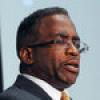Benton Foundation

2018: A Turning Point for "Big Tech"
Earlier this month we examined how partisan division at the Federal Communications Commission impedes progress towards closing the digital divide. Now, we review another big telecom policy story from 2018: the democratic harms of “Big Tech”. In 2018, we got a better, but more disturbing, understanding of the size and influence of large technology companies (Apple, Amazon, Facebook, Google, and Microsoft), and particularly how social media platforms affect our democratic discourse and elections.

Elections Matter: Who’s Who in Telecommunications Policy in the 116th Congress
The 116th Congress is underway. In the background of a partial government shutdown, lawmakers are getting their committee assignments. At Benton, we keep a close eye on two key Congressional panels because of their jurisdiction over many telecommunications issues and oversight of the Federal Communications Commission: 1) the House Commerce Committee's Communications and Technology Subcommittee, and 2) the Senate Commerce Committee. Here's a look at some key telecom policymakers -- and their priorities -- in the 116th Congress.

Takeaways From Attorney General Nominee Williams Barr's Confirmation Hearing
William Barr’s nomination as President Doanld Trump’s attorney general is in front of the Senate Judiciary Committee, which conducted a confirmation hearing Jan 15. Below are some key communications policy takeaways:
Two Researchers Join Benton Team
Benton Foundation Executive Director Adrianne B. Furniss announced that Dr. Christopher Ali is the foundation’s new Faculty Research Fellow and Dr. Ryland Sherman is Benton’s new Research Associate. As the Benton Faculty Research Fellow, Dr. Ali will continue his work on a systematic and comprehensive assessment of rural broadband policy, technology, markets, and stakeholders.

The FCC's Classification of Mobile Broadband Ignores Technology, History, and Common Sense
The Federal Communications Commission’s 2018 Restoring Internet Freedom (RIF) Order reclassified mobile broadband Internet access service from a commercial mobile service to a private mobile service, largely by ignoring the integration of the Internet with the telephone network. This reclassification gave the FCC the license to repeal the 2015 net neutrality rules for mobile broadband service. How did this FCC get to the conclusion that the most important public mobile service of our time is a private mobile service?
The Partisan Divide: Looking Back at Broadband Policy in 2018
Upon reflection, it is easy to see that 2018 was a year of widening divides. Communications policy was no exception. In the midst of a partial government shutdown, we take a look at how partisan division at the Federal Communications Commission is shutting down progress towards closing the digital divide. While we expect partisan division to persist, the change in House leadership means we are likely to see more scrutiny of Chairman Pai's deregulatory agenda.

Creative Orientation Means Success In Broadband and Telehealth
Two years ago I wrote that community broadband builders have two options for network deployment: they could use the problem-solving approach or the creation orientation approach. The problem-solving approach is typical when people deal with the government. The goal is often to make something go away.

A Stellar Public Servant
A legend is leaving the Federal Communications Commission as the new year begins. Her name is Karen Peltz Strauss. Some of you may not have heard of her, but to the nation’s disabilities communities, she is a hero. She achieved this status the old-fashioned way. She earned it. In over 40 years in Washington, I have been privileged to work with many brilliant public servants. Karen Peltz Strauss is in the top-most tier of these incredibly able people. Her star shines brightly in the public service firmament. She came to the agency with a goal, she never wavered from that goal, and she achie

Former FCC Commissioner Mignon Clyburn Joins Benton Foundation
Benton Foundation Executive Director Adrianne B. Furniss announced that former Federal Communications Commissioner and Acting Chair Mignon L. Clyburn has joined the foundation’s Board of Directors effective January 1, 2019.
Nominated by President Barack Obama, Clyburn served as an FCC Commissioner from August 2009 until June 2018, and as Acting FCC Chair from May 20, 2013 through November 4, 2013. While at the FCC, Clyburn was a champion of diversity in media ownership, an advocate for the reform of Inmate Calling Services, and a staunch defender of a free and open internet.

The FCC's Restoring Internet Freedom Order is Ignorant of and Conflicts With the Internet's Architecture
The Federal Communications Commission’s 2018 Restoring Internet Freedom (RIF) Order reclassified broadband Internet access service from a telecommunications service to an information service, largely on the basis of an interpretation of broadband service that is fundamentally incorrect. This reclassification gave the FCC the license not only to repeal the 2015 net neutrality rules, but to abdicate its role overseeing the broadband market.

